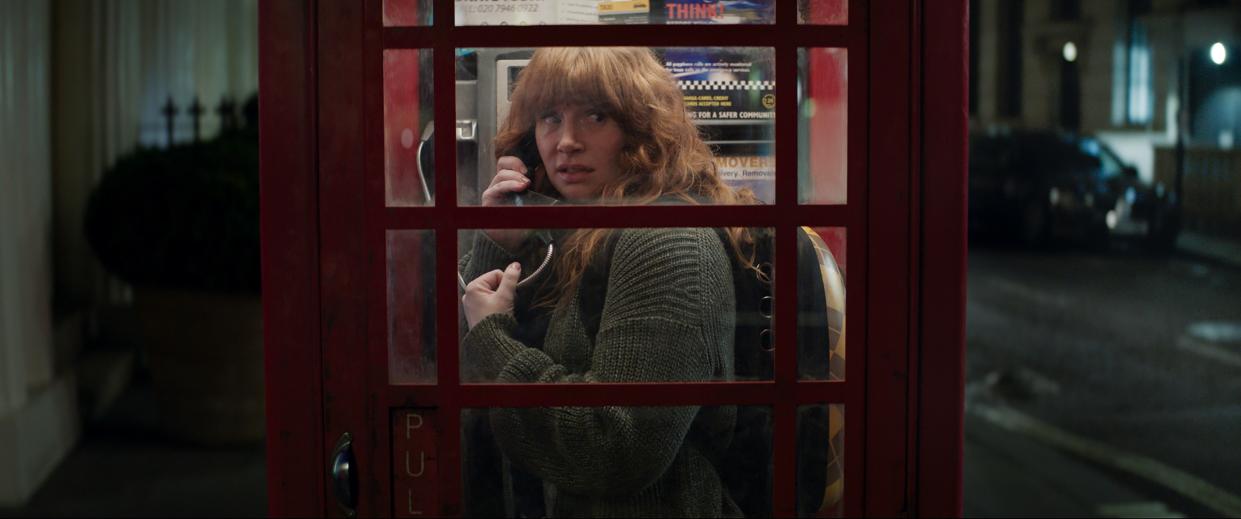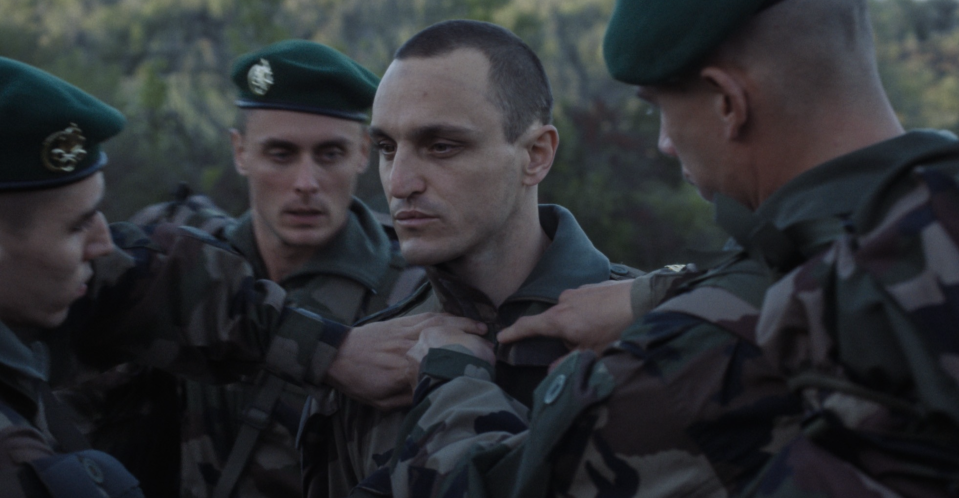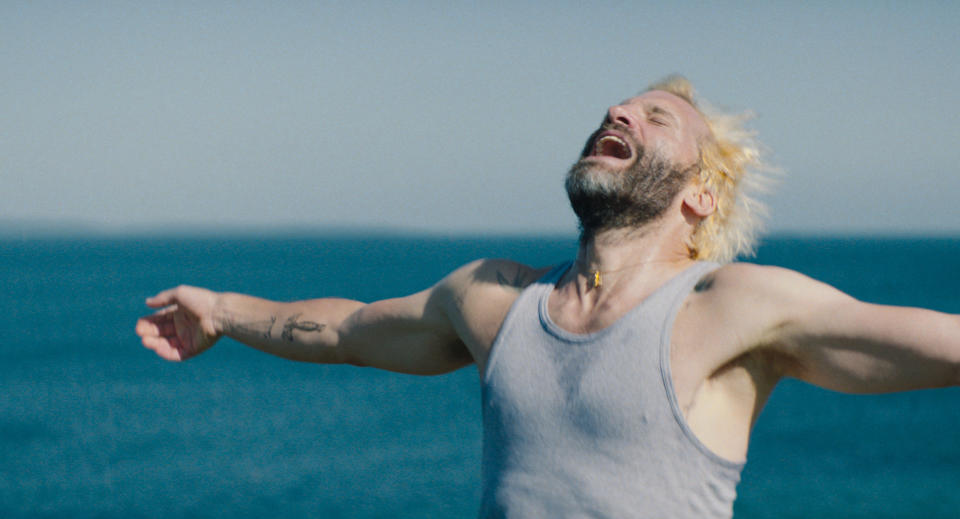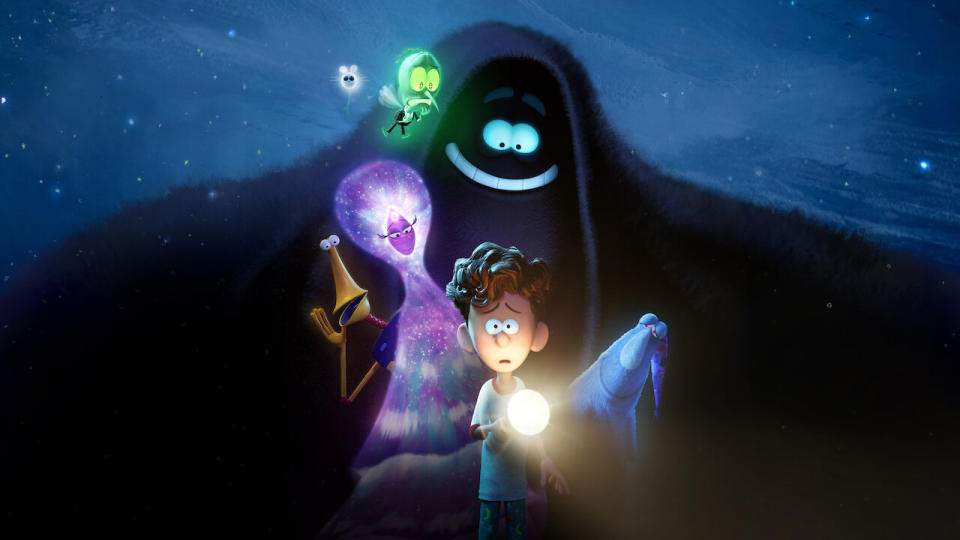Where to Watch This Week’s New Movies, Including ‘Argylle’ and ‘How to Have Sex’

This week in new releases: an absolutely brain-breaking assortment of early February picks. While most attention (but, and we’re just guessing here, likely not actual ticket-buying dollars) will be focused on Matthew Vaughn’s potential franchise-starter “Argylle,” a closer look at the lineup reveals a bevy of unexpected gems. We’re not always going to caution away from the $200 million+ would-be blockbuster, but in a week in which you can use your movie minutes to watch festival breakouts, a documentary about Dario Argento, and even a kids movie written by Charlie Kaufman, we’d be remiss if we didn’t gently steer you to those picks instead.
That’s right! Hit the theater for the festival breakouts, like Molly Manning Walker’s “How to Have Sex,” Giacomo Abbruzzese’s Franz Rogowski-starring “Disco Boy,” Alex Schaad’s intriguing “Skin Deep,” and even the brutal Mads Mikkelsen joint “The Promised Land.” Then, you and the little ones can choose to settle in for, yes, a kids movie written by Charlie Kaufman. And then you can invite your horror-loving pals over to watch the fascinating doc “Dario Argento Panico” on Shudder. Who said early February didn’t have variety?
More from IndieWire
Each film is now available in a theater near you or in the comfort of your own home (or, in some cases, both, the convenience of it all). Browse your options below.
Week of January 29 – February 4
New Films in Theaters
“Argylle” (directed by Matthew Vaughn)
Distributor: Universal Pictures and AppleTV
Where to Find It: Theaters
When a Matthew Vaughn movie isn’t fun, it doesn’t exactly have a lot to fall back on. Equal parts “Romancing the Stone” and “Jason Bourne” (even though both of those inspirations are suffocated beneath Vaughn’s signature varnish), “Argylle” ends on another glorious high that a more serious movie would never have been able to pull off, but the flimsy and hyper-contrived fluff leading up to it is so determined to justify its own absurdity that it doesn’t leave us enough of a chance to enjoy it.
That effort is on full display from the very first scene, as Jason Fuchs’ high-concept script kicks off with a prologue that spotlights the absurdity of the story to come while simultaneously framing it as a meta excuse for all of the film’s shortcomings. Sure, the suave and unflappable Argylle — played by Henry Cavill, smoldering in a series of collarless jackets that make his head look like a perfect square — is just a simple caricature of literature’s most iconic spies, and the CGI-drunk action sequence where he crashes a Jeep through half the houses on Mykonos is rendered with all the realism of a Playstation 2 cut-scene, but that’s only because all of this is being dreamed up by an anxious cat lady who learned everything she knows about espionage from reading books and watching movies. Read IndieWire’s full review.

“Disco Boy” (directed by Giacomo Abbruzzese)
Distributor: Big World Pictures
Where to Find It: Select theaters, with expansion to follow
It might be reductive to call “Disco Boy” a kind of club kid cousin to “Beau Travail,” but the comparisons aren’t entirely off. Like Claire Denis’ Sight and Sound chart-topper, here is a tour with the French Foreign Legion, another dissection of colonial roleplaying spent among a taciturn lot who find best expression in the rhythms of the night. So let’s dispense those comparisons up front, and with a degree of military efficiency befitting both films: While director Giacomo Abbruzzese does indeed pay homage to a direct artistic forbearer, his debut film stands (and writhes and shimmies) all on its own.
Pushed and pulled by another intensely physical Franz Rogowski turn, “Disco Boy” follows a man ever on the move, a paperless migrant whose name, identity, nationality and, it seems, spiritual sense of self remain constantly in flux. Read IndieWire’s full review.
Plus: Read IndieWire’s interview with star Franz Rogowski.
“How to Have Sex” (directed by Molly Manning Walker)
Distributor: MUBI
Where to Find It: Select theaters
Less an instructional film than a sloppy-drunk after school special about a girls trip gone wrong, Molly Manning Walker’s “How to Have Sex” folds a nuanced look at the pressures and permissiveness of teenage friendships inside a frustratingly didactic story about the vagaries of consent. Needless to say, that’s not the movie Walker’s three 16-year-old heroines were hoping to be in when they arrived on the Greek island of Malia for the kind of boot-and-rally bacchanalia that British kids have turned into a rite of passage. They signed up for “Spring Breakers,” only to find themselves stranded in something closer to an episode of “Skins.”
It’s not their fault. Best friends Tara, Em, and Skye have no way of knowing they’ve walked into a trap. They can’t hear the muted soundscape that Walker creates for them as they arrive on their first beach; they can’t see that cinematographer Nicolas Canniccioni is shooting them with a detached remove that portends social horror even more clearly than it promises sexual hedonism (it should be noted that first-time director Walker is a gifted DP herself, having recently lensed the Sundance highlight “Scrapper”). Read IndieWire’s full review.

“The Promised Land” (directed by Nikolaj Arcel)
Distributor: Magnolia Pictures
Where to Find It: Theaters
“The Promised Land,” Nikolaj Arcel’s historical epic set in 18th century Denmark, opens with an ominous epigraph: “The heath cannot be tamed.” For a minute, the proverb reads like a foregone conclusion. Then Mads Mikkelsen shows up onscreen, and we are reassured that the words are merely a challenge, daring the great Dane to prove them wrong.
And prove them wrong he does — to a degree. Mikkelsen plays Ludvig Kahlen, a bootstrapping military veteran who, at the start of the film, fixes his sights on a tricky target: the heath of Jutland, a barren and unforgiving terrain known to be inhospitable to farming. All who have seen the area consider it a wasteland. But to Kahlen, the site might as well be El Dorado; he believes that cultivating the land will be his key to acquiring riches and a royal title from King Frederik V. Read IndieWire’s full review.
Plus: Read IndieWire’s interview with star Mads Mikkelsen.
“Scrambled” (directed by Leah McKendrick)
Distributor: Lionsgate
Where to Find It: Select theaters
Lena Dunham had “Girls.” Amy Schumer had “Trainwreck.” And now, Leah McKendrick has “Scrambled.” The filmmaker and star behind the dramedy “Scrambled” shines in this coming-of-age fertility saga, which chronicles an aimless 34-year-old who decides to freeze her eggs amid the onslaught of weddings, bridal showers, and babies her peers are suddenly throwing.
The film follows Los Angeles native Nellie (McKendrick), whose best friend Sheila (“Saturday Night Live” standout Ego Nwodim) is getting married. Gone are their days of doing coke together and partying without consequence: Sheila is pregnant and tying the knot, while Nellie gets stuck rolling on ecstasy by herself at the reception. That’s where she crosses paths with her friend group idol Monroe (June Diane Raphael) who informs Nellie that becoming a mother at age 40 was the most painful experience of her life. With over $50,000 sunk into IVF to produce daughter Zophia (yes, with a Z), Monroe warns Nellie that her thirties are not to be wasted and she needs to plan ahead for every possible future she may want later. Read IndieWire’s full review.

“Skin Deep” (directed by Alex Schaad)
Distributor: Kino Lorber
Where to Find It: Select theaters
From the opening moments of this impressive debut (co-written by Schaad and his brother Dimitrij), there’s a vague sense that several of the characters we meet are not who they appear to be. Twentysomething Leyla has been invited to the island by an old friend of hers from university, but the old man waiting for her and Tristan when their ferry arrives (“The Experiment” actor Edgar Selge) doesn’t much resemble the Stella we had in mind. And that disconnect is further underlined when Stella calls out to his female-presenting assistant with an enthusiasm that suggests he takes a special pleasure in saying her name: Ezra.
Although shy and hesitant about the whole situation, Leyla seems rather intrigued by how lightly everyone on the island wears their skin. It’s not a curveball so much as a giddy proof-of-concept. “The so-called ‘self’ is a very fragile construct,” Stella declares, and visitors to this strange playground will find much to enjoy about their time in a place where identity is divorced from the bodies that usually do so much to define it. Read IndieWire’s full review.
Also available this week:
“She Is Conann” (directed by Bertrand Mandico)
Distributor: Altered Innocence
Where to Find It: Select theaters
New Films on VOD and Streaming, Including Premium Platforms and Virtual Cinemas
“Dario Argento Panico” (directed by Simone Scafidi)
Distributor: Shudder
Where to Find It: Streaming on Shudder
IndieWire review to come.

“Orion and the Dark” (directed by Sean Charmatz)
Distributor: Netflix and DreamWorks
Where to Find It: Streaming on Netflix
Charlie Kaufman isn’t one to half-ass things or lend his name to projects that don’t reflect the full volume of his voice as a writer, but I was admittedly skeptical of his screenplay credit on Netflix’s “Orion and the Dark,” an animated kids movie adapted from Emma Yarlett’s picture book of the same name and directed by Sean Charmatz, whose most notable work includes a pair of “Trolls” shorts and a job as “head of story” on “The Angry Birds Movie 2.”
On the one hand, this is the first time since “Eternal Sunshine of the Spotless Mind” that Kaufman has been credited for writing a film that he didn’t direct himself. On the other hand, it’s hard to put much faith in credits on a streaming platform that doesn’t even let you watch them, and — beloved as Yarlett’s book might be — this project seemed like precisely the kind of content slop whose producers would regard Kaufman’s imprint as less of a feature than a bug. A Netflix movie like this doesn’t have to be special, it just has to distract kids from watching “Bluey.” Read IndieWire’s full review.
Also available this week:
“The Unbreakable Tatiana Suarez” (directed by Cassius Corrigan)
Distributor: HBO
Where to Find It: HBO and streaming on Max
Check out further listings on the next page by hitting “Next.”
Best of IndieWire
Christopher Nolan's Favorite Movies: 40 Films the Director Wants You to See
Quentin Tarantino's Favorite Movies: 60 Films the Director Wants You to See
Sign up for Indiewire's Newsletter. For the latest news, follow us on Facebook, Twitter, and Instagram.

 Yahoo News
Yahoo News 
